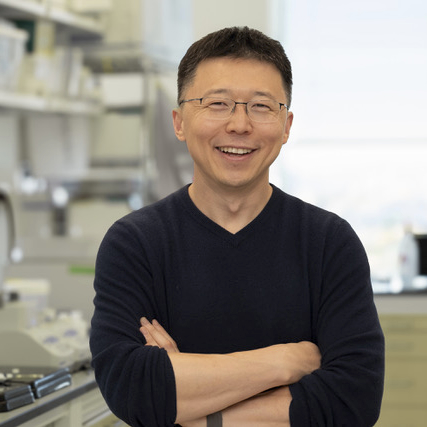
Feng Zhang, PhD
Feng Zhang, PhD, is a molecular biologist focused on developing and applying novel molecular technologies for studying and improving human health. Considered to be one of the most inventive life scientists in the world, he studies biological diversity with the goals of understanding nature, and discovering systems and processes within nature that may be harnessed through bioengineering.
Dr Zhang played an integral role in the development of two revolutionary molecular technologies: optogenetics, which lets researchers control neurons with light to learn more about how the brain works, and CRISPR-Cas9-based gene editing, which allows researchers to make precise changes to the DNA in living cells. He and his team have adapted multiple other CRISPR systems for use as genome and transcriptome engineering tools, as well as developed a number of applications of CRISPR systems including high-throughput genome screening, gene insertion, and detection of nucleic acids.
In 2023, the first CRISPR-based therapeutic, Casgevy, was approved for treatment of sickle-cell disease, and there are many clinical trials on-going to test other CRISPR-based therapeutics. In addition to therapeutic use, his lab’s tools, which he is renowned for making widely available, are also being used broadly to accelerate basic research as well as being deployed in other biotechnological applications. Dr Zhang’s long-term goal is to develop novel therapeutic strategies for complex diseases without a single underlying genetic change. Tackling brain diseases, specifically, has been a goal since college, when he saw friends suffering from severe mental illness.
Born in China, Feng emigrated to the United States in 1993 at the age of 11. He received his undergraduate degree in chemistry and physics from Harvard College and his PhD in chemistry from Stanford University.
Dr Zhang is a member of the National Academy of Sciences, the National Academy of Medicine, and the American Academy of Arts and Sciences as well as a fellow in the National Academy of Inventors. He is the recipient of many awards, including the Canada Gairdner International Award, the Blavatnik National Award for Young Scientists, the Albany Medical Center Prize in Medicine and Biomedical Research, the Lemelson-MIT Prize, and the National Medal of Technology and Innovation.